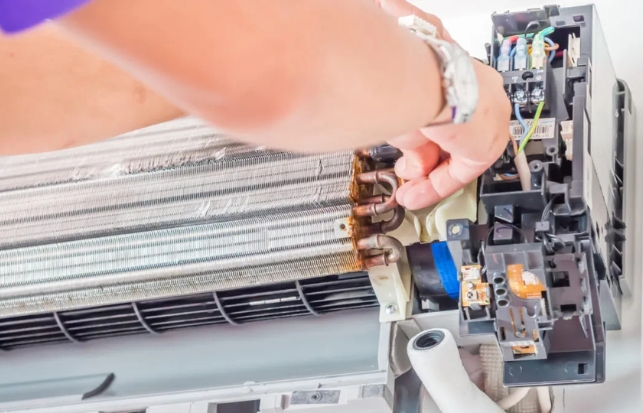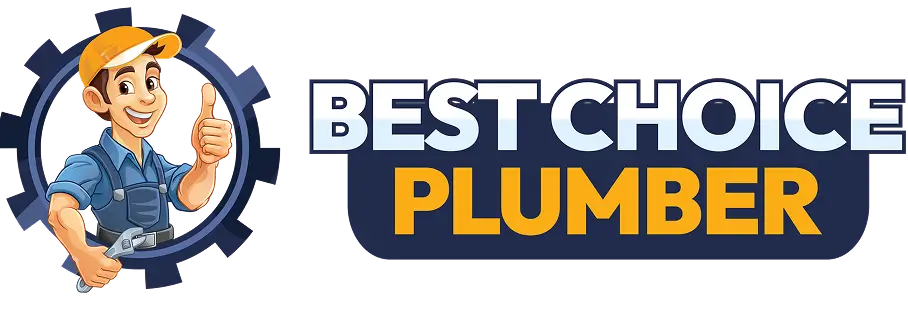
A cool room is no less than a blessing during the summer season. How does it feel when you return home after a hot, sunny day and find an air conditioner that is not working properly? You will become furious, and the air becomes heavy due to frustration.
Before you rush to call a technician, take a moment. Many common AC problems are easier to understand and fix than they seem. From dirty air filters to blocked vents or a simple thermostat setting error, a bit of AC troubleshooting can often get your system running again.
In this guide, we’ll walk you through practical air conditioning troubleshooting tips that help you identify what’s wrong, understand how to fix an air conditioner, and decide when it’s best to call in a professional. Whether you’re dealing with central air conditioning in your office or a house air conditioner not working as it should, this simple approach can save you time, money, and a lot of unnecessary sweat.
Understanding How an AC System Works
Before you start any AC troubleshooting, it helps to understand the basics of how your air conditioner functions. Every system, from apartment air conditioners to large central AC units, relies on the same key components:
- Evaporator Coil: Absorbs heat from the air inside your home.
- Condenser Coil: Releases the heat outdoors.
- Compressor: Pumps refrigerant through the coils.
- Air Filter & Vents: Regulate airflow throughout your home or office.
When any one of these parts fails, you’ll experience reduced cooling, poor airflow, or sometimes a complete shutdown.
The Most Common Air Conditioner Problems and Their Solutions
Not every AC system that is not working requires an expensive repair. Below are the most frequent causes and what you can do before calling an expert.
1. Dirty Air Filter
Dirty air filter is the most prominent reason for reduced cooling, because it restricts the airflow, which in result puts pressure on the unit and forces it to work harder. This leads to poor air circulation and higher energy bills.
Fix: It is best to replace or clean your filter every one to three months to avoid any inconveniences.
2. Thermostat Setting Error
Sometimes its not he technical issues that are causing the problem, rather it’s the incorrect settings that are to blame. If your system isn’t cooling properly, it’s best to check if the thermostat is set to cool mode and that the temperature is lower than the current room temperature.
Fix: You should calibrate or replace the thermostat if adjusting it doesn’t help.
3. Blocked or Closed Air Vents
Air vents that are closed or somehow obstructed restricts the air distribution. This causes the central AC not to cool properly and effectively.
Fix: Try to keep the vents open and make sure that no furniture item or curtain blocking it.
4. Frozen Evaporator Coil or Refrigerant Line Ice
If you see frost or ice around your indoor coil or refrigerant line, it’s a sign of restricted airflow or low refrigerant.
Fix: Turn off your AC and let it thaw completely before restarting. If the problem recurs, it’s time for professional inspection.
5. AC Circuit Breaker Tripped
Power surges or overloading can cause your AC circuit breaker to trip.
Fix: Check the breaker panel and reset it once. If it trips again, call a technician.
6. Poor Airflow or Ventilation Issues
Fix air conditioner ventilation system issues often stem from duct leaks or a failing fan motor.
Fix: Inspect for visible duct damage and schedule a thorough cleaning. Best Choice Plumber offers diagnostic checks that identify weak airflow points before they escalate.
Quick Diagnostic Chart for AC Troubleshooting
Symptom | Possible Cause | Suggested Action |
AC not cooling | Low refrigerant, dirty coil | Clean coils, check refrigerant |
Weak airflow | Clogged filter, blocked vents | Clean or replace filters |
Strange noises | Loose parts, debris in fan | Turn off the unit, inspect and clean |
Water leaks | Clogged condensate drain line | Clear drain or call a technician |
Short cycling | Oversized unit or thermostat issue | Check settings, consult pro |
Why Your AC Might Suddenly Stop Working?
Multiple reasons are included when an AC unit stops working. Some of the main one’s are:
- A clogged filter or coils block the airflow, resulting in the freeze system
- Because of low refrigerant levels, the system can’t cool properly
- Another main reason is the compressor failure which is usually caused by overheating or low maintenance.
- Faulty wiring or sensors is also an integral cause if your AC stops working as it disrupts the electrical connections and cause short cycling
For central AC problems, issues often trace back to the outdoor condenser or internal blower. Best Choice Plumber recommends annual AC maintenance and condenser cleaning to prevent such failures.
The Importance of Regular AC Maintenance
Homeowners don’t usually take maintenance as something important and neglect the normal care, not even knowing that simple maintenance can extend the lifespan of their system and can also improve its cooling performance.
High Energy Bills Could Be a Red Flag
High energy bills can be an alarming sign that there is a problem in your system. Some of the most common causes must be dirty coils, low refrigerants, or an old system. A complete check can help in identifying the root cause before it becomes a struggle for you.
When to Call for Professional AC Repairs
DIY fixes can handle some air conditioner problems and solutions, but not all. If your house air conditioner not working persists after basic checks, you might be facing an electrical, refrigerant, or mechanical fault that needs certified expertise.
Here’s when you should call for professional help:
- Frequent system shutdowns.
- Refrigerant leaks.
- Compressor not starting.
- Persistent water leakage.
AC Troubleshooting Tips for Different Settings
For Apartments:
If the air conditioner of your apartment is not working properly, make sure it’s plugged in properly and the circuit isn’t tripped
For Houses:
For houses, troubleshooting involves checking the outdoor units, inspection of any leakage in the ducts, and cleaning the condenser.
For Offices or Commercial Buildings:
Commercial buildings and offices, because their huge setups have complex controls rather than the normal one’s, they require a specialized AC maintenance.
Frequency of Common AC Issues in Homes

Understanding these patterns helps both homeowners and facility managers prioritize AC repairs and regular maintenance.
How Professional AC Repairs Help Long-Term
When professionals handle air conditioning repair tips or full servicing, they not only fix current issues but also enhance your system’s lifespan. Regular inspections detect early signs of central AC problems, helping you avoid sudden breakdowns in extreme temperatures.
Professional maintenance can also improve air quality. Clean filters and ducts reduce dust, pollen, and other allergens vital for healthier indoor environments.
Final Thoughts
Troubleshooting your air conditioner doesn’t need to feel overwhelming. By understanding how your system works and keeping up with routine AC maintenance, you can prevent most problems before they start. For businesses, scheduled HVAC troubleshooting improves energy efficiency and keeps work environments comfortable year-round.
If you’ve tried these air conditioning troubleshooting tips and still face issues, it’s time to call a certified technician. Remember, regular care isn’t just about fixing, it’s about maintaining comfort, efficiency, and peace of mind.
Also Read: Why My Air Conditioner Leaking Water Inside?
Frequently Asked Questions
The major problem of any AC is its clogged or dirty air filter, which limits airflow and reduces cooling efficiency.
This rule is to help you either you should replace or repair your system. Multiply your unit's age by the repair cost. If the repair cost exceeds $5000, then you had better replace your system.
Start it by checking the settings of the thermostat, filters, vents, and breakers. If the issue continues, it's better to get help from a professional and move the refrigerant lines.
When you turn off your AC, you should wait at least three minutes before restarting it. This will prevent the overload of the compressor and balance the system.
